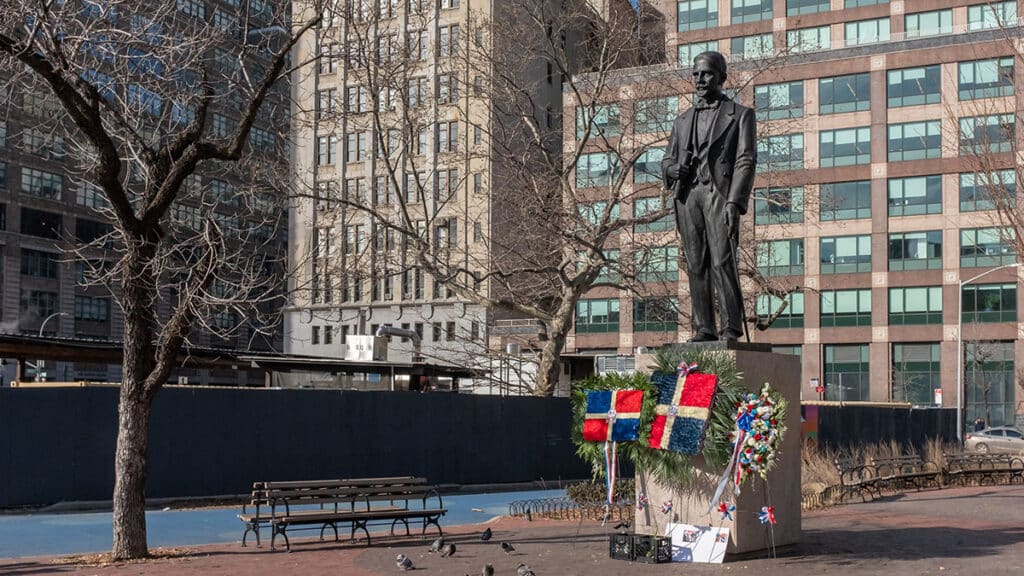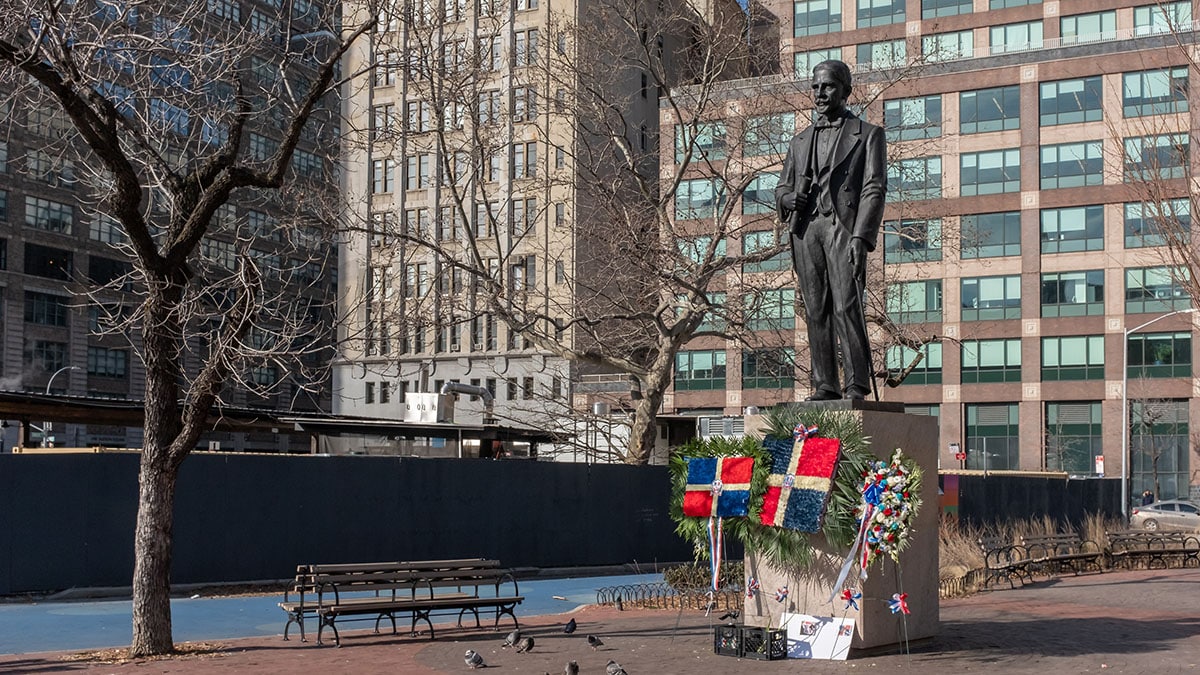
Juan Pablo Duarte (1813-1876) is considered the founding father of the Dominican Republic. He didn’t define Dominican democracy, but he was the thought leader and a financier of the struggle for independence from outside powers. He founded La Trinitaria, the rebel group which led the Dominican War of Independence (1844-1856) from Haiti. Today Duarte is an inspiring and unifying figure in the Dominican Republic. The Washington Square’s of the Dominican Republic are Plaza Duarte.
The Struggle for the Independence of Hispaniola and the End of Human Enslavement
Haiti and the Dominican Republic share the island of Hispaniola. Their relations were complicated by extended conflict between and against French, Spanish and other colonizers, and the long struggle to end human enslavement on the island.
The American Revolution (1765-1863), the French Revolution (1789-1799), the Haitian Revolution (1791-1804) and the Peninsular War (1808-1814) of Spaniards against French rule in Spain, all affected the Caribbean and South America. After a brief independence from Spain in 1821, Hispaniola was united under Haitian rule in 1822.
The union was popular at first, but the Haitians were against human enslavement. The new nation was burdened by French demands for reparations from independence which led to unpopular taxation. The Haitians were against the Roman Catholic church because of its association with French colonization. All of these issues created conflict with landowning Dominican families in Santo Domingo.
Juan Pablo Duarte Founded La Trinitaria
Born in Santo Domingo on January 26, 1813, Duarte was a criollo (first-generation American). He spent some of his childhood in exile in Mayagüez, Puerto Rico where his family sought refuge from the turmoil of the Haitian Revolution.
Duarte was a highly educated man who sincerely stood for democratic principles. In 1838, he became one of the founders of La Trinitaria, the secret association of rebels fighting Haitian rule, and La Filantrópica, a public theatre group that used drama to educate.
Duarte did not want to return his country to Spanish rule, so he was exiled to Venezuela in 1843, but his organizing and financial support for the work of La Trinitaria led to the declaration of independence from Haiti on February 27, 1844. Duarte basically spent his family fortune funding the resistance.
The new Dominican government offered Duarte the presidency, but he declined. He died in Caracas, Venezuela on July 15, 1876.
Part of Duarte’s eternal appeal is that he stood for principles and made sacrifices for those principles. He wasn’t the typical politician who tries to take everything for himself. In this way, he is an aspirational model for all politicians, even today.
Juan Pablo Duarte in New York City
Juan Pablo Duarte Square was created in Manhattan’s Hudson Square in 1945 when Sixth Avenue was renamed Avenue of the Americas as a celebration of the unity of North and South America.
The Dominican Republic donated a statue of the leader in 1978, on the 165th anniversary of Duarte’s birth.
In the Dominican Republic
Juan Pablo Duarte’s birthday is a national holiday. The main celebration is at his tomb in Santo Domingo. There are marching bands, proud soldiers, and things like that. It’s like the Fourth of July in the United States. Dominicans are very proud of their country.

